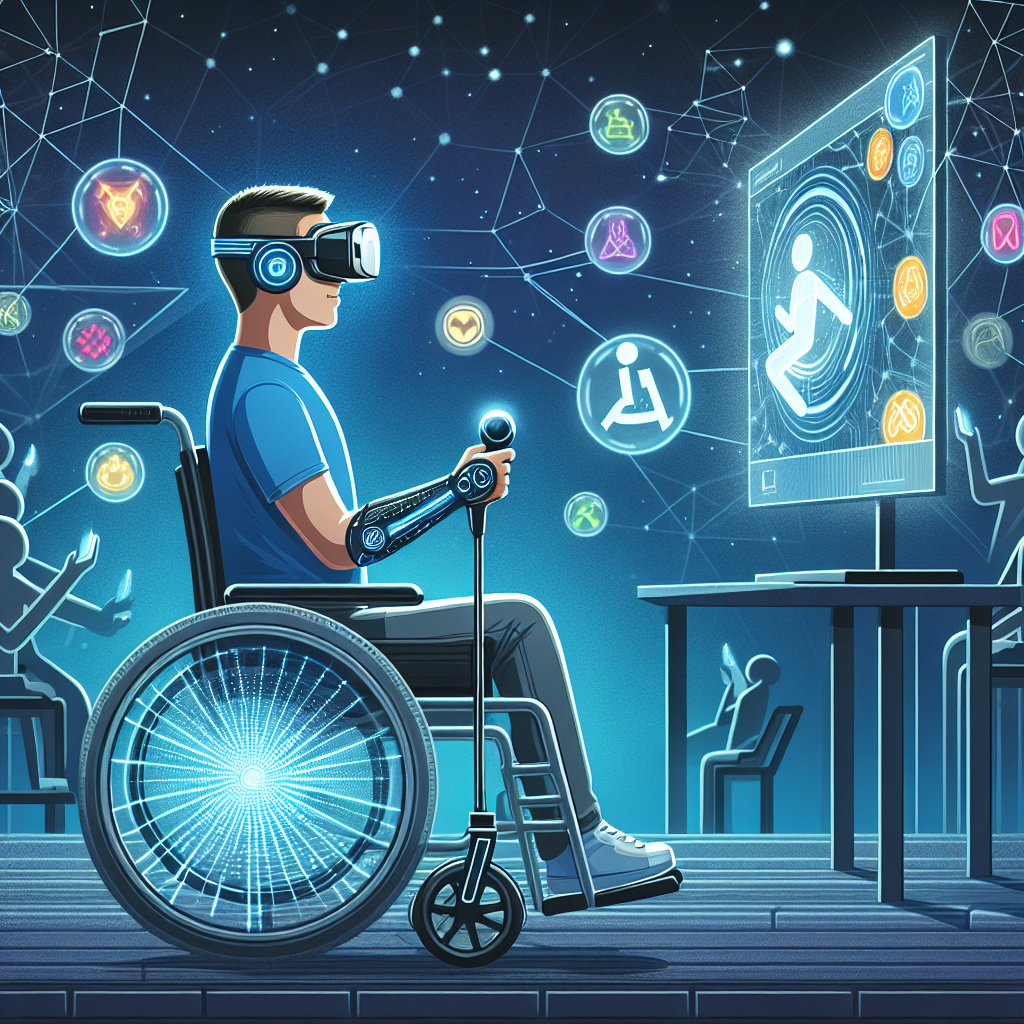In recent years, there has been a significant push towards making video games more accessible to players with disabilities. One of the key technologies driving this movement is artificial intelligence (AI). AI has the potential to revolutionize the way games are played and experienced by providing innovative solutions to overcome barriers faced by disabled players. In this article, we will explore how AI is improving game accessibility for disabled players and the potential impact it could have on the gaming industry.
One of the most common barriers faced by disabled players is physical limitations that make it difficult to use traditional input devices such as keyboards, controllers, or mice. AI technology can help bridge this gap by enabling players to interact with games using alternative input methods. For example, AI-powered voice recognition software can allow players to control gameplay using voice commands, eliminating the need for physical input devices. This can be particularly beneficial for players with mobility impairments or conditions such as arthritis that make it difficult to use traditional controllers.
In addition to voice recognition, AI can also be used to develop gesture recognition technology that allows players to control games using hand gestures or body movements. This can be especially helpful for players with limited mobility who may struggle to use traditional input devices. By leveraging AI, game developers can create more inclusive gaming experiences that cater to a wider range of players with disabilities.
AI can also enhance the visual experience of games for players with visual impairments. For example, AI-powered image recognition technology can be used to provide audio descriptions of in-game events, environments, and characters for players who are blind or have low vision. This can help players navigate the game world more effectively and immerse themselves in the gameplay experience.
Furthermore, AI can be used to customize gameplay experiences based on individual player preferences and needs. For example, AI algorithms can adjust game difficulty levels in real-time based on player performance, ensuring that players of all skill levels can enjoy the game without feeling frustrated or overwhelmed. This level of personalization can make games more accessible and enjoyable for players with disabilities, ultimately creating a more inclusive gaming community.
Another area where AI is making a significant impact on game accessibility is in the development of assistive technologies. These technologies are designed to help players with disabilities overcome specific challenges they may face while playing games. For example, AI-powered text-to-speech software can read in-game text aloud for players who are visually impaired or have dyslexia. Similarly, AI-powered audio captioning technology can provide real-time subtitles for players who are deaf or hard of hearing, ensuring that they can follow the dialogue and narrative of the game.
Overall, AI has the potential to revolutionize game accessibility for disabled players by providing innovative solutions to overcome barriers and create more inclusive gaming experiences. As technology continues to advance, we can expect to see even more groundbreaking developments in this area that will make games more accessible and enjoyable for players of all abilities.
FAQs:
Q: How can AI improve game accessibility for disabled players?
A: AI can improve game accessibility for disabled players by enabling alternative input methods, enhancing the visual experience, customizing gameplay experiences, and developing assistive technologies that cater to individual player needs.
Q: What are some examples of AI-powered assistive technologies for disabled players?
A: Examples of AI-powered assistive technologies for disabled players include voice recognition software, gesture recognition technology, image recognition technology, text-to-speech software, and audio captioning technology.
Q: How can AI help players with visual impairments?
A: AI can help players with visual impairments by providing audio descriptions of in-game events, environments, and characters, as well as enhancing the visual experience through image recognition technology.
Q: How can AI help players with mobility impairments?
A: AI can help players with mobility impairments by enabling alternative input methods such as voice recognition and gesture recognition technology, which eliminate the need for physical input devices like controllers or keyboards.
Q: How can AI personalize gameplay experiences for disabled players?
A: AI algorithms can adjust game difficulty levels in real-time based on player performance, ensuring that players of all skill levels can enjoy the game without feeling frustrated or overwhelmed. Additionally, AI can customize gameplay experiences to cater to individual player preferences and needs.
In conclusion, AI is playing a crucial role in improving game accessibility for disabled players by providing innovative solutions that cater to individual needs and preferences. As technology continues to advance, we can expect to see even more groundbreaking developments in this area that will make games more inclusive and enjoyable for players of all abilities.

